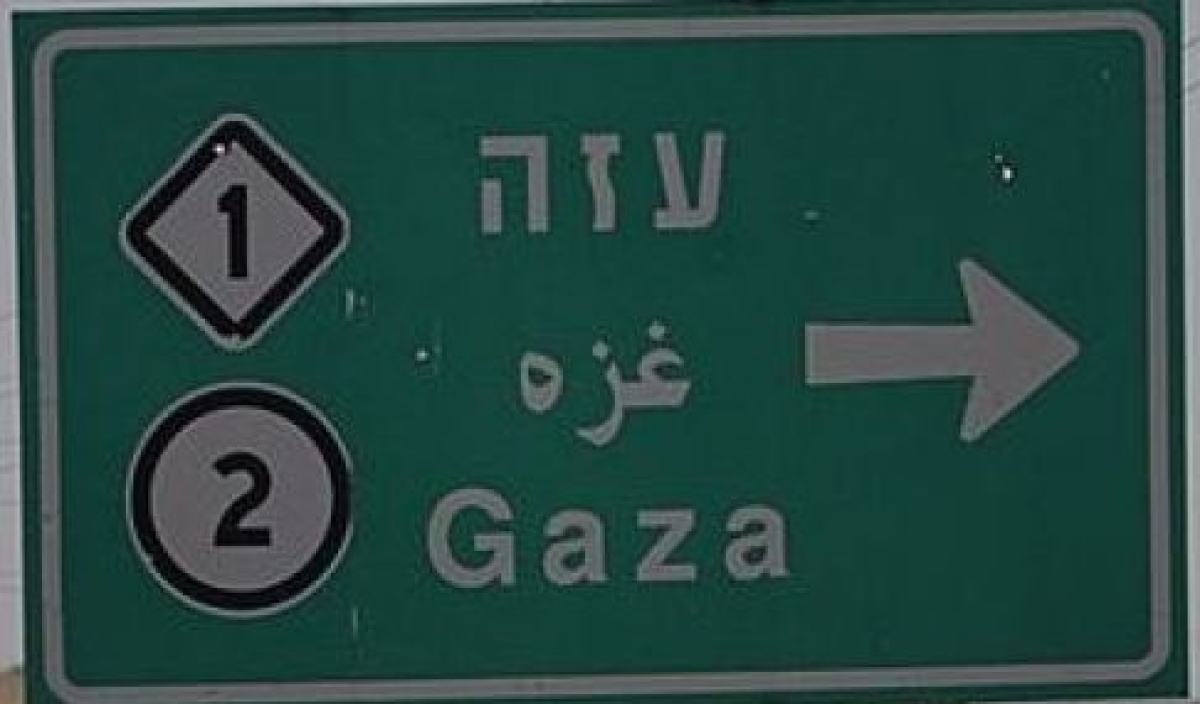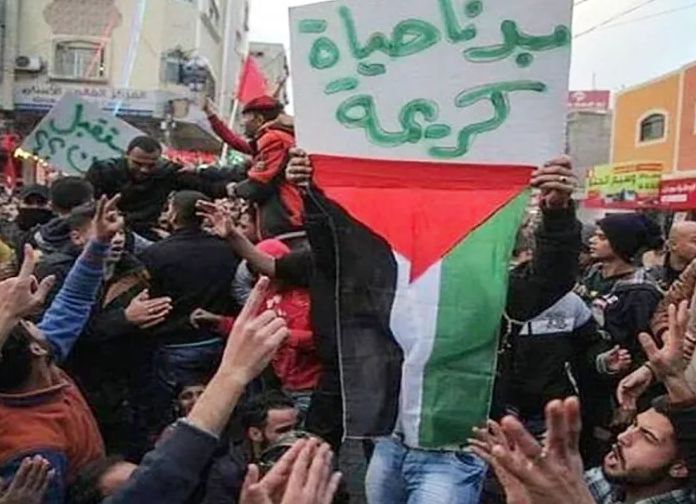Was denken die Menschen in Gaza über die Herrschaft der Hamas?

Bildquelle: Wikimedia Commons
Was denken Menschen in Gaza über die Hamas? Erfreut sie sich breiter Unterstützung in der Bevölkerung oder hoffen viele gar auf einen Sturz der Terrorgruppe?
Solche Fragen stellen sich dieser Tage viele und es ist schwer, Antworten zu erhalten, die wenigstens einigermaßen belastbar sind. Nach fast zwei Jahrzehnten diktatorischer Herrschaft, die Opposition mir äußerst repressiven Methoden unterdrückte, sind Informationen, die aus dem Gazastreifen kommen, immer mit Vorsicht zu genießen.
Immerhin kam es dort 2019 zu Massenprotesten gegen die Hamas, die in Folge äußerst brutal unterdrückt wurden. Viele der Anführer dieser Proteste landeten im Gefängnis oder mussten aus dem Gazastreifen fliehen. Trotzdem fanden auch danach immer wieder kleinere Demonstrationen statt, zuletzt im Sommer diesen Jahren, die allerdings mit extremer Härte unterdrückt wurden:
For the third time in recent days, protest leaders had called for demonstrations — but a heavy police presence throughout the territory deterred efforts to gather in large numbers. (...)

The protest organizers — some of them Palestinians based abroad — said the attempted demonstrations were mainly a reaction against Hamas’s authoritarian rule, as well as its failure to improve dire living conditions.
Widersprüchliches aus Meinungsumfragen
Eine Meinungsumfrage, die kurz vor den Massakern vom 7.10 im Gazastreifen durchgeführt wurde, kam zu dem Ergebnis, dass eine Mehrheit der Menschen gegen Krieg mit Israel und die Hälfte für eine Anerkennung des jüdischen Staates votierte - letztere Forderung steht in diametralem Gegensatz zum Programm der Hamas - und doch erfreuen sich Hamas und Islamic Jihad weiter breiter Unterstützung:
62% supported Hamas maintaining a ceasefire with Israel. Moreover, half (50%) agreed with the following proposal: “Hamas should stop calling for Israel’s destruction, and instead accept a permanent two-state solution based on the 1967 borders.” Moreover, across the region, Hamas has lost popularity over time among many Arab publics. This decline in popularity may have been one of the motivating factors behind the group’s decision to attack. (...)
Nevertheless, there is widespread popular appeal for competing armed Palestinian factions, including those involved in the attack. Overall, 57% of Gazans express at least a somewhat positive opinion of Hamas—along with similar percentages of Palestinians in the West Bank (52%) and East Jerusalem (64%)—though Gazans who express this opinion of Hamas are fewer than the number of Gazans who have a positive view of Fatah (64%).
"Die Hunde von der Hamas"
Entsprechend mit Vorsicht sollten deshalb auch Interviews gelesen werden, die jüngst das Center for Peace Communications mit Menschen in Gaza geführt und in "The Free Press" veröffentlicht hat, könnte man da doch glatt den Eindruck gewinnen, die Mehrheit der Menschen sehne sich quasi einen Sturz des Hamas-Regimes herbei. Und doch sind diese Statements von Interesse:
"A grieving woman in Gaza cry out. She says: “All this is because of the dogs of Hamas.” She’s immediately—literally—silenced. (...)
“Hamas bears responsibility for all the wars, but we’re the ones who pay the price"
In the first episode, a resident of Gaza City shares widespread Palestinian anxiety that international humanitarian aid for Gaza will not reach the people who need it. In Gazans’ experience, he says, “When Hamas distributes the aid, only Hamas members get the aid.” The same applies to Gaza’s healthcare system, where “Hamas families get preferential treatment” and even the most urgent needs of others “could be delayed for a long time so that Hamas loyalists are treated first.” (...)
When the October 17 explosion in a Gaza hospital triggered an international debate over who was to blame, Gazans we spoke with felt the terms of the debate were wrong. “I’d rather tell you who’s responsible for making people need to go to the hospital in the first place,” a speaker says in Episode Two. “Hamas bears responsibility for all the wars, but we’re the ones who pay the price.” (...)
Contrary to Hamas propaganda, (the woman) says, “Ending Hamas is the demand of young and old alike in Gaza.” For her family, the demand is deeply personal: “My older brother was murdered by Hamas in front of our eyes,” she says. “Fifty-four gunshots all over his body, his blood spilling in front of his children.” (...)
“Ashraf,” a 28-year-old evacuee from Gaza City now residing in Khan Younis, saw his brother murdered by Hamas as well. Both had been involved in peaceful demonstrations against Hamas. We wanted to know whether such activists would support the toppling of the regime if it came with the heavy human toll of an Israeli ground assault.
“We welcome any change that will save us from this indignation called Hamas,” Ashraf says in Episode Four, “whether by Jews or non-Jews.” But he also worries that the war will end with Hamas in place: “If Hamas remains, there might, for example, be a truce, and in a year or two Hamas would repeat the same scenario. In those two years, I’ll go backwards 50 years—and I need two good years just to get back on my feet. I have no house, no life, nothing.”
Sturz oder Containment der Hamas?
Die Sorge von "Ashraf" kenne ich persönlich aus Gesprächen mit Mitgliedern des "Gaza Youth Movements", die federführend die Proteste 2019 organisiert hatten. Immer wieder hörte ich von ihnen, dass Israel kein Interesse an einem Sturz der Hamas hätte, sie nur hätte schwächen wollen. Nicht nur sie, auch Kritiker aus Israel haben der Netanjahu Regierung immer wieder vorgeworfen, Hamas eigentlich an der Macht lassen zu wollen.
Nach dem 7.10 soll es diesmal wirklich um ein Ende von Hamas und co in Gaza gehen. Dann wäre abzuwarten, ob und wie die Menschen in Gaza auf so einen Regime Change reagieren, vorausgesetzt ihnen wird irgend eine Perspektive auf eine bessere Zukunft in Aussicht gestellt.